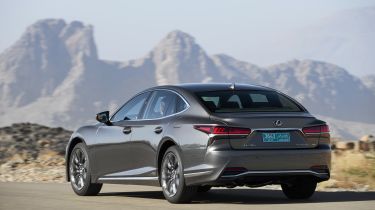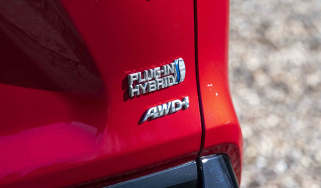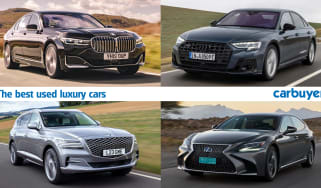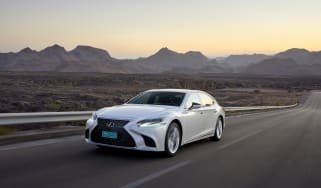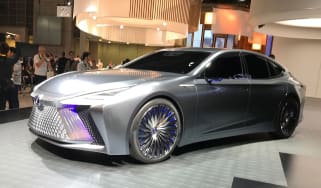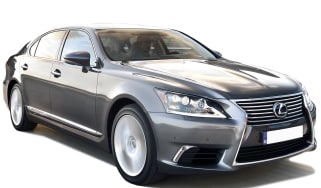Lexus LS saloon review
"The Lexus LS 500h luxury saloon can't compete with the refinement, technology and performance offered by its rivals"
Pros
- Impressive technology
- Quality reputation
- Opulent interior
Cons
- Intimidating size
- Unexciting to drive
- No diesel version
Verdict: Is the Lexus LS a good car?
In isolation, the Lexus LS is a very comfortable and smooth car to travel in, with lots of equipment. The problem for Lexus is that the German rivals to the LS are better in almost every area. They are more refined, offer better in-car tech, are more efficient and better to drive. While the LS 500h is by no means a bad car, alternatives such as the Mercedes S-Class, Audi A8 and BMW 7 Series make it very difficult to recommend.
Lexus LS range
When the Lexus brand first appeared in the UK at the beginning of the 1990s, its LS 400 was the first car to really challenge Germany's near-total domination of the large luxury saloon market. Almost 30 years later, its LS 500h descendent is here to remind the BMW 7 Series, Mercedes S-Class and Audi A8 not to rest on their laurels.
In fact, after an initial surge in interest at the beginning, Lexus' largest saloon became rather a niche choice in recent years, selling in the hundreds rather than thousands. But, bringing technology to the very fore, and wearing a far more distinctive look than its predecessors, the latest LS 500h stands a good chance of introducing new buyers to the brand.
More reviews
In-depth reviews
The small 'h' tacked onto its name hints that a hybrid power system is at the Lexus' heart. Its V6 petrol engine isn't entirely new but has been heavily revised to go under the bonnet of this flagship model. The platform the LS sits on has plenty of promise, too – it's a lengthened version of that used by the blisteringly fast and sweet-handling LC 500 coupe.
You can choose the LS in three trim levels: the standard LS500 h, the LS 500h F-Sport, or the LS 500h Takumi. Every version has 20-inch alloy wheels, multi-way power seat adjustment, LED exterior lighting, climate control, sat nav and a 12-speaker stereo. The range-topping Takumi really does pile on the standard equipment – with 'Shiatsu' massage seats in the front and back and an indulgent 'Ottoman' feature that allows one rear-seat passenger to really stretch their legs out.
It also boasts the Lexus Safety System, which brings the ability for the car to stay in lane with only a feather-light touch on the steering wheel, automatically changing lanes when you hold the indicator stalk halfway down.
Alas, those in the hunt for pure speed from their prestige saloon will be disappointed – the UK is denied the twin-turbocharged petrol LS offered elsewhere. No longer is a choice of wheelbase offered, although the latest model does stretch some 35mm further between its front and rear axles than the previous car, which bodes well for rear legroom.
That hybrid powertrain consists of a 3.5-litre 295bhp V6 petrol engine and a pair of electric motors – a total of 354bhp is available when all three work together. This is enough to take the LS 500h to 62mph from rest in just 5.4 seconds. That figure applies to rear-wheel-drive variants – the heavier AWD version (standard on Takumi cars) takes 5.5 seconds. Every version uses a CVT gearbox which can mimic the feel of a 10-speed automatic transmission.
Unfortunately, despite its hybrid powertrain, the LS 500h isn't exactly the last word in fuel efficiency, largely because the car is very heavy. The top model is claimed to return just 29.7mpg, while CO2 emissions from 214g/km place it in the highest Benefit-in-Kind (BiK) bracket for company-car users.
The Lexus fights back with a very plush interior. Build quality is first-rate, and in Comfort mode the car wafts effortlessly around town. Then there's Lexus' enviable reputation for reliability and customer service – the brand took the top spot in our 2017 Driver Power owner satisfaction survey, but had slipped to 12th spot in 2022’s results.

